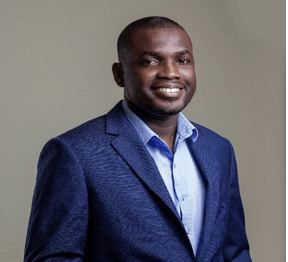I welcome you all to another epistle from your Savings and Investment Tutor. The Bank of Ghana has released its 2022 Annual Report and Financial Statements, providing a comprehensive overview of the country’s economic performance over the past year.
The report highlights several key challenges, including high inflation, a widening balance of payments deficit, and a negative equity position for the central bank. A close analysis of this report provides intriguing insights into Ghana’s monetary policy, its response to economic shocks, and the challenges it faces moving forward.
- The challenge of inflation and monetary policy
The headline inflation rate of 54.1 percent as of 2022 clearly stands out, marking a significant deviation from the medium-term inflation target of 8±2 percent. This surge in inflation reflects economic uncertainty and, possibly, a response to pandemic-related shocks or other economic pressures. At the same time, the Bank of Ghana’s monetary policy rate has been set at 27 percent. This is a likely countermeasure to curb inflation, albeit at the risk of slowing down economic growth by making borrowing more expensive.
- GDP growth amid turbulence
Despite the high inflation, Ghana has managed a Real GDP growth rate of 3.1 percent. While modest, it signals resilience in the face of challenging circumstances. This growth, however, should be viewed in the context of the broader global economic context and the specific challenges facing the Ghanaian economy.
- The trade deficit and its implications
The report cites a balance of payments deficit of US$3.6billion. This indicates that the country is importing more goods, services and capital than it’s exporting. Such a trade deficit can put pressure on the country’s foreign reserves and possibly weaken the currency over time.
- Vulnerable international reserves
In conjunction with the balance of payment deficit, the Gross International Reserves stood at just 2.7 months of import cover, a precarious position. This could result in challenges to macroeconomic stability, particularly if there were to be further shocks to the global economy or drops in commodity prices that Ghana relies on for exports.
- Domestic debt exchange programme
The domestic debt exchange programme has left a negative equity position of GH¢55.12billion. While debt restructuring initiatives can be necessary to manage the state’s liabilities and ease fiscal pressures, the negative equity position might raise concerns about the country’s solvency and overall fiscal health.
The Bank of Ghana’s 2022 Annual Report illuminates the complexity of managing an economy in uncertain times. The challenge for Ghana’s policy-makers will be to bring inflation under control without stifling growth, to balance international trade, and to ensure fiscal and economic stability. Ghana’s journey through these challenges will be critical to watch as it continues to navigate through the post-pandemic global economy.
The Bank of Ghana should continue monitoring these factors and taking steps to mitigate any potential risks. However, the challenges facing the Ghanaian economy are significant, and it is likely that the country will experience some economic turbulence in the near term.
I hope this perspective has provided some value.
Ghana must rise again, and very quickly!
>>>The writer is a Chartered Banker and a Chartered Global Investment Analyst with over eight years’ experience in mainstream banking, having worked in various capacities. He is the Head of Member Experience, Regulations and Business Development at the Chartered Institute of Bankers, Ghana. He has been a qualified member of the Chartered Institute of Bankers, Ghana with a good membership standing since the year 2013.
He also holds an EMBA and a BA from the Kwame Nkrumah University of Science and Technology and the University of Ghana, respectively. Patrick is a Financial Discipline and Personal Financial Management Expert. Patrick has also been teaching on the topics of savings, investment and financial independence for over seven years, and is a research fellow for ILAPI Ghana.
He runs a popular financial channel on YouTube by the name ‘Patrick TV GH’ and has appeared regularly on various local and foreign media platforms. Patrick is into youth facilitation and career counselling. Follow Patrick on the various platforms for more education: Facebook: www.facebook.com/PatrickTVGh/ Instagram: @PatrickTVGH










